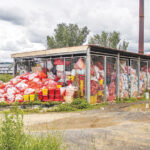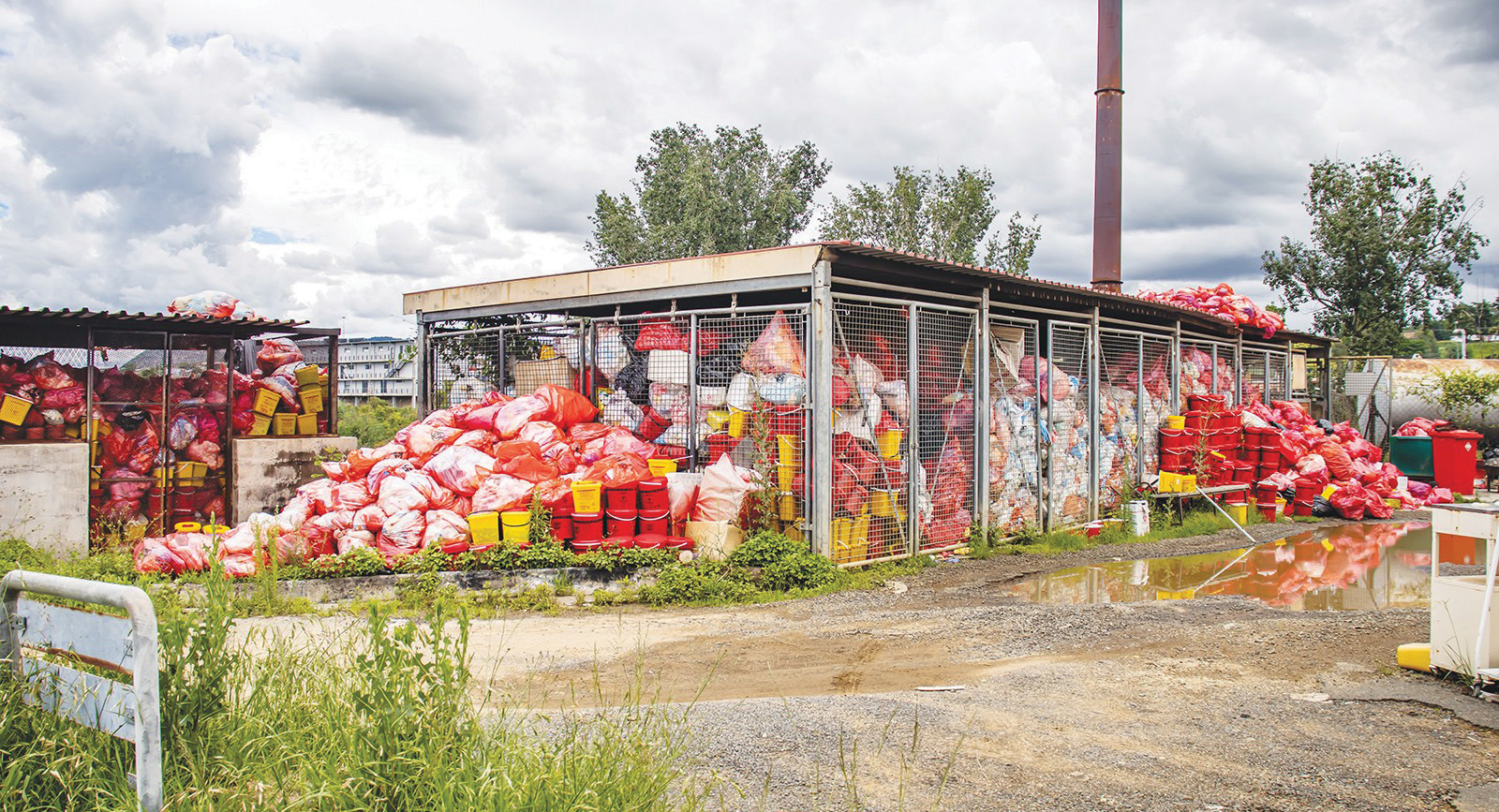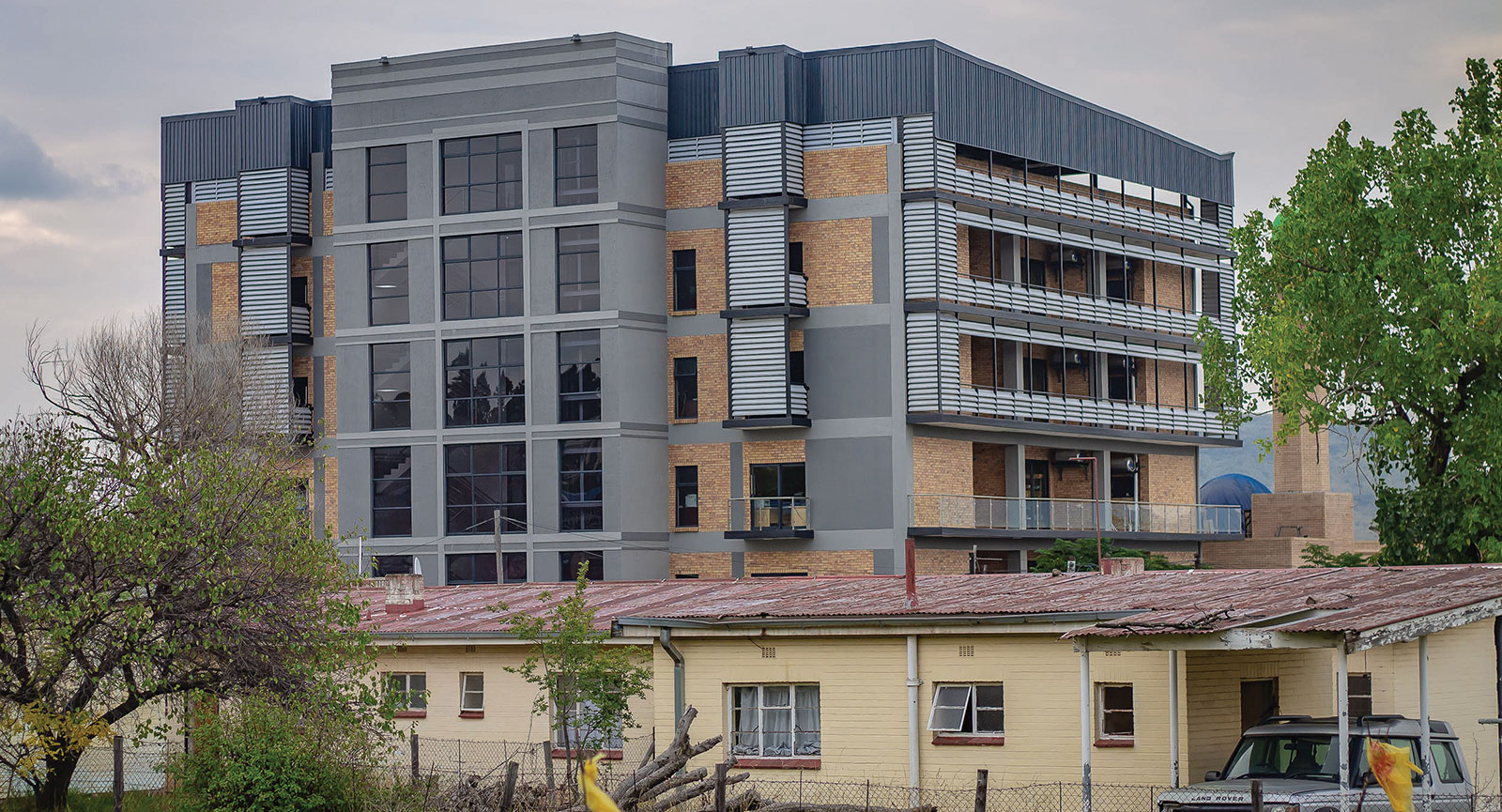Motebang hospital choked by toxic waste

SHARE THIS PAGE!
A mounting medical waste crisis has gripped Motebang Hospital in Leribe after its newly installed incinerator broke down three months ago, forcing hazardous refuse to accumulate dangerously within the hospital compound.
The crisis has raised alarm over the safety of patients, health workers, and surrounding communities. Medical waste, if not properly destroyed, can spread life-threatening infections, inflict injuries through sharp objects, and contaminate soil and water with toxic chemicals.
“This waste pile is out of control, and nothing is being done. The incinerator is new, but it is not operational. A technician from the Ministry of Health headquarters in Maseru inspected it and found major internal repairs were required. Since then, waste has just been piling up,” a hospital insider told this publication.
The broken incinerator – three times larger than the hospital’s old one – was acquired only last year with World Bank funding. It was intended to end years of inadequate waste disposal at Motebang. Instead, it now stands idle while hazardous materials stack up in hospital yards.
A source said staff had been instructed to hold off burning until repairs are made, but no interim solution has been provided. “We were told it’s awaiting repairs, but in the meantime, the waste keeps coming every day.”
The matter spilled into Parliament last month when Member of Parliament Mabafokeng Mpobole grilled Health Minister Selibe Mochoboroane on whether he was aware of the “grave danger” at Motebang.
She pressed him on whether:
- he knew that both the new and old incinerators at the hospital were not functioning;
- he was aware that pathological waste, including human organs and tissues, cannot be stored long-term;
- and whether he knew Motebang was depending on Mafeteng hospital’s incinerator, despite waste not being transported there daily.
“How soon will the minister intervene?” Mpobole demanded.
In response, Mochoboroane admitted the incinerator was out of service.
He said the unit would undergo repairs starting the week of 25 August 2025, funded through the Global Fund. He also revealed that waste from Motebang was being trucked to other facilities with functional incinerators, though he conceded transport was irregular.
“Incinerator parts are not readily available; they are manufactured upon order, which extends turnaround times,” he said.
Mochoboroane further blamed poor monitoring at facility level, claiming staff had incinerated “explosive items” that damaged the internal walls of the machines – costly repairs that now fall on government.
This is not the first time Motebang has faced such a crisis. In 2022, staff raised concerns about large piles of waste left unattended for weeks, warning of exposure to infectious and chemical hazards. Those warnings appear to have gone unheeded.
Motebang handles all categories of hospital waste:
- Infectious waste — contaminated blood, fluids, cultures, and laboratory specimens.
- Pathological waste — human organs, tissues, and fluids.
- Sharps — needles, syringes, and scalpels.
- Chemical waste — solvents, disinfectants, and heavy metals.
- Pharmaceutical waste — expired drugs and vaccines.
These materials require incineration at extremely high temperatures to reduce them to sterile ash. When that process is interrupted, they become a potent hazard.
Experts warn that waste accumulation at hospitals can fuel outbreaks. Blood-contaminated sharps risk transmitting hepatitis or HIV if scavenged or mishandled. Infectious waste can spread bacteria into the air and water. Expired pharmaceuticals and chemical residues, if not destroyed, seep into soil, poisoning the environment.
“The risks extend beyond hospital gates. It endangers cleaners, waste handlers, and even communities nearby. Every day the waste is not destroyed, the risk multiplies,” said a health professional not authorised to speak publicly.
Motebang’s courtyard remains littered with hazardous refuse awaiting an uncertain repair process. While the Ministry of Health insists contractors are being procured, the hospital’s staff and patients remain exposed.
“The incinerator was meant to solve our waste problem,” one staff member lamented. “Instead, it has made it worse. Until it’s fixed, every day is a gamble with our health.”

Motebang hospital choked by toxic waste
4 days ago
M260m standards hub stuck in bureaucracy
4 days ago
Man seeks divorce over cheating allegations
6 days ago
IEC looks for new commissioners
6 days ago

Summit targets Lesotho’s jobs crisis
7 days ago


BEDCO, RSL to train youth entrepreneurs
9 days ago
Sehlabathebe power project to resume
11 days ago